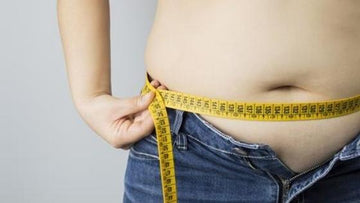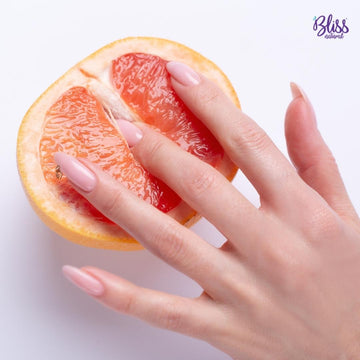You may begin to experience a variety of symptoms before your period, ranging from cramping to mood swings to sore breasts. But, of all the PMS issues, the one that appears to be the most unwelcoming is unexpected weight gain! More than 90% of people who menstruate have PMS symptoms. Let’s look at why people gain weight during their periods and what you can do about it.
Is it natural to gain weight during your period?
It’s very common to gain or lose weight while you have premenstrual syndrome or even when you start menstruation. This phenomena affects many women, and while it may be unpleasant to some, there is no need to be concerned.
Is it natural to gain weight during this period?
The majority of the weight acquired during periods is due to water retention. A woman can gain up to 2 kilograms on average during her period. Weight gain normally starts three to four days before she is due to bleed.
Is it going to go away on its own?
Because water makes up the majority of your weight, it naturally begins to decrease once you stop menstruating. Most of the weight loss occurs within 2 to 3 days after your period has ended.
Why does this happen?
Period weight gain can occur for a variety of causes. There are numerous elements that influence why a woman gains weight and how much she will gain. Among the causes are:
1. Hormonal imbalances
Estrogen and progesterone are the two primary sex hormones in females. Hormone levels begin to rise before your period, then progressively decrease as your period approaches. The body’s indirect fluid retention is caused by oestrogen fluctuations.
Higher amounts of progesterone, on the other hand, alter a hormone called aldosterone, which causes the kidneys to retain more salt and water. Water retention or oedema, as well as weight increase, can result in swelling in the face, breasts, belly, and limbs.
As hormone levels return to normal after the period, the retained fluid is discharged.
2. Swollen
The sensation of having gained weight might be induced by water retention in the abdomen area and a buildup of gas produced by hormonal changes. This, however, is not attributable to fat accumulation. Not only does bloating affect the abdomen, but it can also affect other sections of the body.
This usually begins before the onset of your periods and can linger up to the first few days of your menstruation, after which it begins to lessen and eventually disappears.
3. Problems with the intestines
Constipation, diarrhoea, stomach pains, and gas retention are all gastrointestinal disorders caused by hormone imbalances. Constipation has been attributed by some experts to increased oestrogen levels, which inhibits intestinal motility.
However, the most widely held belief is that as progesterone levels rise, the digestive system slows down, causing comparable gastrointestinal problems. Furthermore, increased progesterone levels result in larger levels of prostaglandins, which are responsible for uterine contractions. It can cause comparable contractions in the gut when mixed with the bloodstream, resulting in belly discomfort.
Bloating is caused by the combination of more stools held in the body and cramps, and gas retention contributes to the sense of weight increase.
4. Curiosity about food
You must be conscious of dietary cravings that occur as your cycle changes. But why is it that your appetite grows? Progesterone levels, which are also the hormone that stimulates your appetite, rise around a week before you’re due to bleed. As a result, you’re hungry more frequently.
Also, because oestrogen regulates serotonin levels, when oestrogen levels drop shortly before you bleed, serotonin levels drop as well. Serotonin is a neurotransmitter that regulates mood and hunger. Sugary food desires are exacerbated by low serotonin levels, as sweet foods aid in the production of this hormone.
When you give in to your cravings, you wind up overeating sweet foods, which causes you to gain weight. You eat more high-calorie meals at this time since your metabolism rate has increased.
5. Routines are being skipped
Before your period, your body’s oestrogen and progesterone levels rise, causing weariness and discomfort, which, when combined with bloating and cramps, makes it difficult to exercise. In addition, skipping workouts and consuming high-calorie foods might lead to weight gain.
6. A decrease in magnesium levels in the body
Magnesium is a mineral that aids in the regulation of water levels in the body. Dehydration caused by low magnesium levels can be disguised as hunger, particularly sugar cravings.
What happens if you consume more sugar? Of course, you’ll gain weight!
How Can I Lose Weight During My Period?
To avoid period bloating and weight gain, you don’t need to do anything special. This innocuous occurrence can be managed by making simple lifestyle changes. To avoid weight gain, try some of the following suggestions:
- Keep yourself hydrated – Drinking enough water will reduce the amount of water the body needs to retain. Also, a magnesium deficiency can lead to dehydration, which can be treated by drinking water rather than succumbing to sugar cravings.
- Regular exercise – Even if it’s difficult to muster the motivation to get up and move during your period, exercising, even light routines, can help you maintain a healthy weight and prevent fluid retention.
- Instead, choose healthful foods – Even though it’s difficult to ignore urges, a little mental resolve can help. When you’re hungry, your appetites intensify. To avoid overeating or binge eating, keep eating healthful foods in modest portions throughout the day.
- Caffeine and salty foods should be avoided – Excess salt and caffeine can cause bloating and water retention, making you feel as if you’ve gained weight. When it comes to your menstruation, stay away from these foods.
- Consider taking magnesium supplements – Magnesium supplements, if recommended by your doctor, can help with dehydration, water retention, bloating, and sugar cravings.
Period weight gain is fairly frequent and is usually caused by hormonal abnormalities. You can even avoid this by following the methods outlined above. However, keep in mind that this is nothing to get worked up over. Use this time to motivate yourself to maintain a healthy lifestyle, which will make you feel better about yourself.
Message from bliss pads
Yes, you can feel like your best self when on your period.
Shop now
www.blisspads.com






